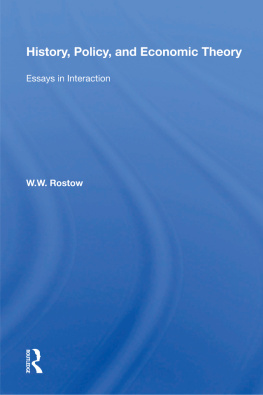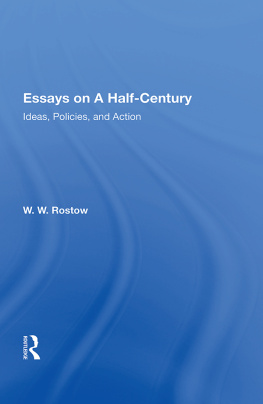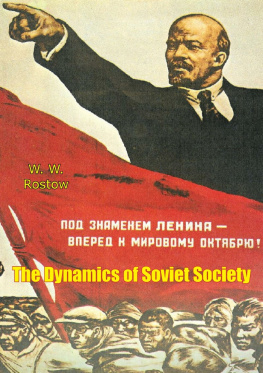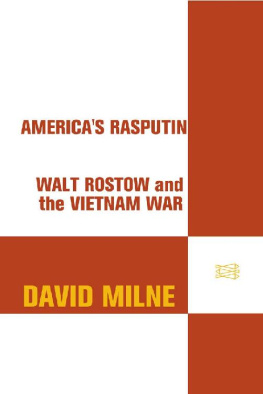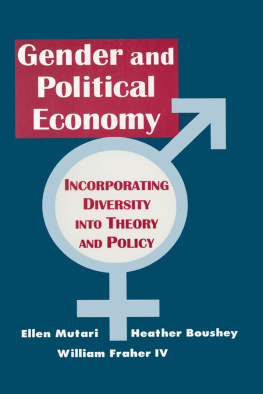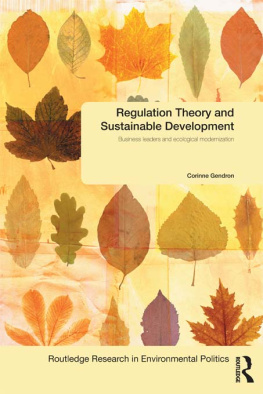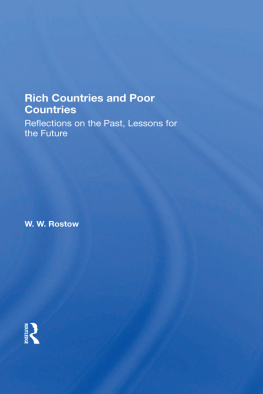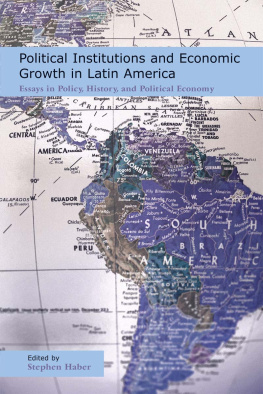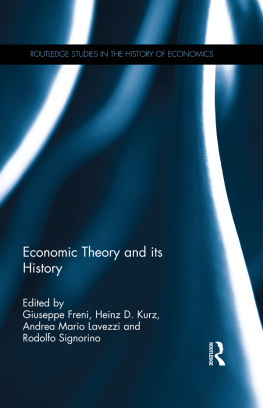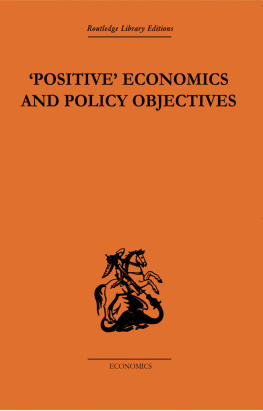W. W. Rostow - History, Policy, and Economic Theory: Essays in Interaction
Here you can read online W. W. Rostow - History, Policy, and Economic Theory: Essays in Interaction full text of the book (entire story) in english for free. Download pdf and epub, get meaning, cover and reviews about this ebook. year: 2019, publisher: Routledge, genre: Politics. Description of the work, (preface) as well as reviews are available. Best literature library LitArk.com created for fans of good reading and offers a wide selection of genres:
Romance novel
Science fiction
Adventure
Detective
Science
History
Home and family
Prose
Art
Politics
Computer
Non-fiction
Religion
Business
Children
Humor
Choose a favorite category and find really read worthwhile books. Enjoy immersion in the world of imagination, feel the emotions of the characters or learn something new for yourself, make an fascinating discovery.
- Book:History, Policy, and Economic Theory: Essays in Interaction
- Author:
- Publisher:Routledge
- Genre:
- Year:2019
- Rating:4 / 5
- Favourites:Add to favourites
- Your mark:
- 80
- 1
- 2
- 3
- 4
- 5
History, Policy, and Economic Theory: Essays in Interaction: summary, description and annotation
We offer to read an annotation, description, summary or preface (depends on what the author of the book "History, Policy, and Economic Theory: Essays in Interaction" wrote himself). If you haven't found the necessary information about the book — write in the comments, we will try to find it.
History, Policy, and Economic Theory: Essays in Interaction — read online for free the complete book (whole text) full work
Below is the text of the book, divided by pages. System saving the place of the last page read, allows you to conveniently read the book "History, Policy, and Economic Theory: Essays in Interaction" online for free, without having to search again every time where you left off. Put a bookmark, and you can go to the page where you finished reading at any time.
Font size:
Interval:
Bookmark:
AND
ECONOMIC THEORY

52 Vanderbilt Avenue, New York, NY 10017
2 Park Square, Milton Park, Abingdon, Oxon OX14 4RN
Product or corporate names may be trademarks or registered trademarks, and are used only for identification and explanation without intent to infringe.
History, policy, and economic theory: essays in interaction /
W. W. Rostow.
p. cm.
Includes bibliographies.
ISBN 0-8133-0918-2
1. Economics. 2. Economic policy. 3. Economic history.
I. Title.
HB171.R673 1990
330dc20 89-5697
CIP
- Part One
Problems of Method - Part Two
Issues of Historical Analysis - Part Three
Elaboration of a Dynamic Theory Including the Take-off Debate - Part Four
Issues of Current Policy - Part Five
The Evolution of Economic Doctrine
- Part One
Problems of Method - Part Two
Issues of Historical Analysis - Part Three
Elaboration of a Dynamic Theory Including the Take-off Debate - Part Four
Issues of Current Policy - Part Five
The Evolution of Economic Doctrine
- Problems of Method
- Issues of Historical Analysis
- Elaboration of a Dynamic Theory Including the Take-off Debate
- Issues of Current Policy
- The Evolution of Economic Doctrine
Font size:
Interval:
Bookmark:
Similar books «History, Policy, and Economic Theory: Essays in Interaction»
Look at similar books to History, Policy, and Economic Theory: Essays in Interaction. We have selected literature similar in name and meaning in the hope of providing readers with more options to find new, interesting, not yet read works.
Discussion, reviews of the book History, Policy, and Economic Theory: Essays in Interaction and just readers' own opinions. Leave your comments, write what you think about the work, its meaning or the main characters. Specify what exactly you liked and what you didn't like, and why you think so.

